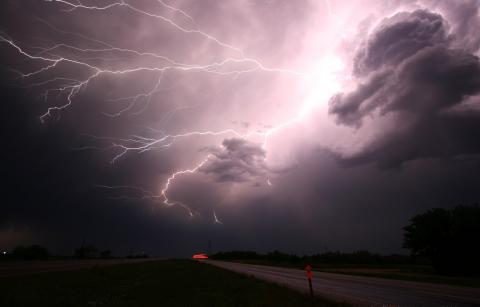It's the "Perfect Storm" for Consolidation

The Perfect Storm is here again: internet sales, consolidation, and the agency sales model. All this has been accelerated by the COVID crisis and the (forced) push for EV production in the US.
In 2008, the economy basically came to a halt. Chrysler and GM went bankrupt, so OEMs took the opportunity to simply shut down dozens of rooftops. Dealers were terminated overnight as their dealer agreements with OEMs became null-and-void with the bankruptcy declarations. With the wave of closures and buy-sells, consolidation became the buzz word, and around 30% of branded rooftops in New England disappeared.
Today, we’re seeing some similarities to that era. While we aren’t expecting bankruptcies, we are seeing and will continue to see a significant wave of consolidation throughout the Northeast.
As in 2008, the “perfect storm” exists today, just with a different configuration. The retail market has evolved into an internet market. Inventories have been a challenge, and COVID has hammered people in all walks of life. What does that mean? Small dealers are not equipped to perform in this “new” market. They have become a “drain” on the brands and themselves, and that goes for both imports and domestics. Just like in the 2008 economic crisis, we’ve experienced much change recently.
To the point, there are the dealers who have barely survived Covid-19 shutdowns, notably the smaller stores. They didn’t have the staff and infrastructure to make necessary adjustments to the pandemic-time market. Sure PPP loans have helped them stay afloat, but the changes to the market and new consumer expectations are here to stay.
Over the past 10 years, there’s been a huge shift to digital, accelerated now by the Covid-19 crisis. Crisis creates opportunity, as in 2008. It is called consolidation at warp speed. Yes it was already happening, but both crises rapidly accelerated consolidation. The digital revolution was increasingly prevalent in the auto industry, but the pandemic accelerated that by 10 years. People want to buy cars online. They want to sign paperwork digitally. Having those options available through companies like Carvana and Vroom means that dealers have to get on board to stay relevant and profitable. Generally speaking, larger dealers and the “groups” have reacted quickly, pushing the buy-sell market to previously unknown heights. Smaller dealers have generally not embraced the new way of doing business.
Early adopters of new technology tend to be the most successful and profitable in the long run, but 3 out of 5 dealers don’t have the means to invest in digitization. Some dealer principals aren’t able or willing to make the leap to online sales. There is only one solution: It is the right time to sell into this very active buy-sell market. Notably the D3 stores are in high demand. Why? Because trucks are in high demand!Actually, we have seen import penetration in New England decline over the past decade as the truck market has taken over 75% of light vehicle sales in the US.
Electric vehicles are another new hurdle. Many OEMs have embraced this trend. Some states in the US, like California, have mandated electric vehicle sales in the future. The EU has as well, leading the German OEMs to move quickly to all-electric fleets. Look at Cadillac. After announcing that dealers would have to invest $200k into transitioning their stores for EV, 17% took the buyout offer, self-terminating 150 Cadillac dealers who aren’t interested in or ready to invest in the future, and that’s just looking at one brand. What will happen to the VW dealers in the US as VW goes 100% EV soon? With a Democratic administration, the electric timeline is likely going to be accelerated, meaning it’s now or never. All very much a huge challenge to US auto dealers, especially in those in the fixed ops GP generation.
Loss of profits, a quickly changing industry and now the looming agency model all create a new “perfect storm” for consolidation. If dealers aren’t willing to adapt, they will fail, and our US dealers aren’t blind to this. A survey showed that 85% of dealers agree that the sales model needs to change in order for them to be successful.
Many dealers are now asking themselves, is it time to invest or divest? One point is clear: To stay the same is to go backward. It’s time to strategize for the future. Each dealer has to decide if they’re excited about what the future of the market holds and if they’re ready to make the necessary changes. If the answer is no, now is the time to sell. Blue sky values are at record highs for the right brands in stores that are compliant and have obvious upside potential. Bigger dealer groups are signing deals by the dozens during this time of evolution.
As was true in 2008, one must make the decision to sell now while the market remains hot. Profits and thus blue sky values will level out over the next 6 months. Don’t wait too long or you will lose your chance to sell at full value. Of course, using a broker to help with this transaction greatly improves the transaction blue sky compared to simply accepting the terms set by the factory.
Not sure what your store is worth if you’re in a position to sell? Start with an appraisal and a consultation with a broker, someone reputable like us that has 41 years or experience, to see what your most profitable options are. We cannot stress enough that making a decision now, as we enter 2021, is important, as this “perfect storm” will force you to make a decision before this hot buy-sell market quickly disappears!






